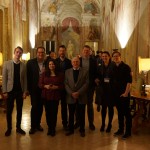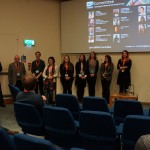KenGen and ITC kick-off collaborative programme on geothermal energy
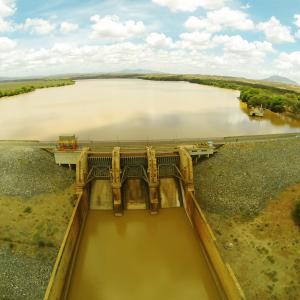 KenGen, Kenya’s leading electric power generation company, and the Faculty ITC of the University of Twente have agreed on a three year collaboration in the field of geothermal energy.
KenGen, Kenya’s leading electric power generation company, and the Faculty ITC of the University of Twente have agreed on a three year collaboration in the field of geothermal energy.
The agreement between the two parties was signed on Thursday 1 November in Nairobi, Kenya. For the period till 2022, the partners have set up a collaborative programme including both on-site activities at KenGen’s power plants in the Olkaria region as well as projects on knowledge exchange and capacity building.
Thom Palstra, rector magnificus at the University of Twente, and Tom Veldkamp, dean of the ITC Faculty of geo-information science and earth observation of the UT, attended the festive kick-off event.
Acquiring and exchanging knowledge
ITC and KenGen have set up a programme for the coming years, as a result of a Memorandum of Understanding which was signed in 2016.
The emphasis of the programme is on acquiring and exchange of knowledge. But also, as part of the programme, specific research projects will be undertaken at the geothermal plants of KenGen. The partners are focusing their activities on remote sensing for exploration purposes, as well as environmental aspects from spaceborne, airborne and UAV platforms. The remote sensing aspects 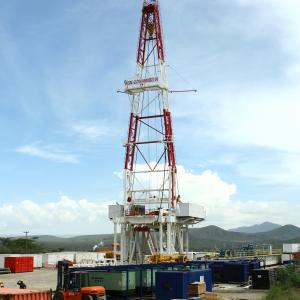 are accompanied by field- and laboratory-based monitoring with a seismic network, thermal monitoring of fumarole activity, as well as meteorologic and geochemical monitoring. There is also research in proximal sensing planned for enhanced mineralogic understanding of legacy drill samples as well as those acquired from new wells.
are accompanied by field- and laboratory-based monitoring with a seismic network, thermal monitoring of fumarole activity, as well as meteorologic and geochemical monitoring. There is also research in proximal sensing planned for enhanced mineralogic understanding of legacy drill samples as well as those acquired from new wells.
Generating energy better, more efficient and safer
Improving on the quality of monitoring will lead to a more sustainable, efficient and safe way of generating geothermal energy. Chris Hecker, who is an assistant professor in geological remote sensing at ITC and programme coordinator of the collaboration, says: “Adequate monitoring results in better grip on geothermal extraction processes. There are many factors that influence the extraction, including changing precipitation patterns as a result of climate change. By being able to anticipate adequately, we will ensure more sustainable and effective extraction processes. At the same time, we will watch the influence of extraction on its surroundings closely: groundwater, surface water, nature and air quality, to name a few.”
Recent experience of ITC researchers in Indonesia on extraction of geothermal energy will proof to be helpful within the collaboration with KenGen. As part of the GEOCAP project, which is financially supported by the Dutch Ministry of Foreign Affairs, public and private partners build a solid network for sustainable geothermal energy generation in Indonesia.
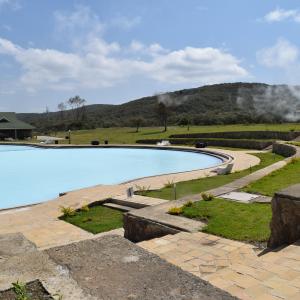 Freek van der Meer, professor in geothermal energy and vice dean responsible for external collaborations states: “By contributing to various projects in this field, we are building bridges between parties all over the world that face similar challenges. Here, we can learn a lot from the experiences in Kenya and try to translate them into possible solutions elsewhere, for example in the Netherlands.”
Freek van der Meer, professor in geothermal energy and vice dean responsible for external collaborations states: “By contributing to various projects in this field, we are building bridges between parties all over the world that face similar challenges. Here, we can learn a lot from the experiences in Kenya and try to translate them into possible solutions elsewhere, for example in the Netherlands.”
About KenGen
Kenya Electricity Generating Company Ltd, as KenGen is named in full, is responsible for over 75 per cent of the production of energy in Kenya. A majority is produced from sustainable sources such as water, wind and geothermal energy. In 1981, KenGen was the first organization in Africa that was able to extract geothermal energy from the soil. Since, a number of geothermal power plants have been built in de Olkaria region. KenGen has the ambition to play a major role in the further development of geothermal energy in the eastern part of Africa. The region counts as one of the hot spots worldwide for this type of energy.
For the Faculty of ITC, working in the Olkaria region is not new: there is a long established relationship with partners in the region, in particular in the field of water management.



